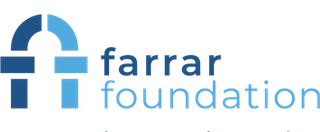2023 Africa Research Excellence Fund Report
The Africa Research Excellence Fund (AREF) continued to expand its work during 2021 and 2022, now working in 24 African countries and supporting the professional and career development of 139 emerging research leaders across the continent. Although the Farrar Foundation's contributions are smaller than some, the partnership's relationship is flourishing and continues to build a network of Fellows and alumni across Africa and beyond.
Whilst science and medicine is flourishing in many parts of Africa, significant barriers to sustained success still exist as the field develops.The AREF is working to break down barriers to access essential opportunities for those starting in their careers, primarily focusing on those who completed their PhD in the last six years. Through workshops, mentorship programmes, fellowships and funding of individual Fellows, the transition from emerging postdoctoral researchers to established independent researchers with a strong network and alumni community to lean on and collaborate with is a special component of the AREF vision and one we share at the Farrar Foundation.
One of the primary support methods has been providing online grant writing programmes -improving accessibility and promoting a COVID-19-safe approach. Four of these workshops were delivered in the 2021-2022 period, which is more than done in any previous year. Two weeks of virtual half-day workshop sessions were delivered over two months to 141 participants. During these sessions an extended concept note is drafted, peer reviewed, and constructively challenged in the six weeks between sessions. Participants gained feedback on their proposals and grant submission plans.
Excell Programme Launch Conference and Workshop attendees
Grant writing programmes that are part of these workshops include the Liverpool School of Tropical Medicine Partnership grant and scientific writing programme, the Underserved countries grant writing programme, the Dorothy Cross grant writing programme and the Women in Research grant writing programme.
During this period, the lack of mentorship and support for female researchers was noted, and as a result of participant feedback two ‘women in research’ seminars were established and delivered in December 2021 and March 2022. Similarly, the mentoring programme was established in 2021, pairing 15 fellows from theResearch Development Fellowship cohort with already established research leaders. One on one coaching sessions by trained mentors helped to support the career development of the fellows, with one participant explaining how they were able to “approach networking in a bold and different way” as a result of the programme.
The AREF has supported 19 new Fellows during 2021 and 2022, as well as supporting fellowship placements which had been delayed by the pandemic. This brings the total number of fellows to 65 and marks the highest number of fellowships awarded in one year for the organisation.
Feedback from the grant writing programmes was overwhelmingly positive, with 100% of respondents indicating that the programme not only met their expectations but would also be something they would highly recommend to colleagues. There was particular emphasis on the immediate practical application of what had been taught. One participant articulated how their workshop had gone “beyond [their] expectations”.
Despite the enforced virtual nature of some of the programmes, the emphasis on building a stable, long term community of researchers continues to solidify AREF’s vision of a truly African led organisation.


